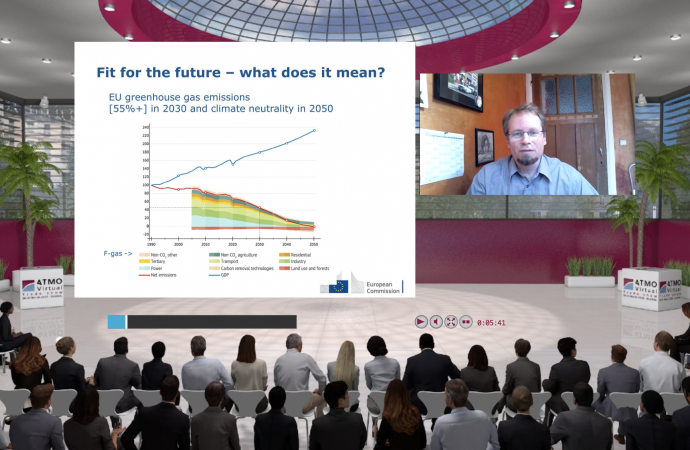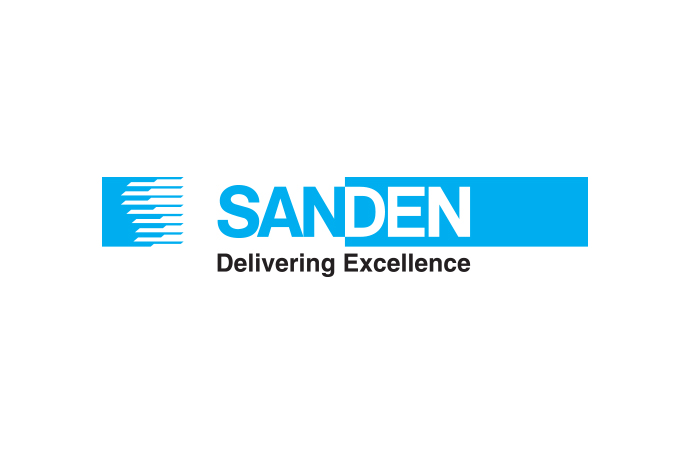The ATMOsphere Review Panel has selected a fourth round of CO2 case studies, from CAREL, Carrier, Kawasaki Heavy Industries and SANDEN, to be presented at ATMOsphere Europe 2017.

The four case studies will be presented at the 8th edition of ATMOsphere Europe, which takes place in Berlin, Germany, on 25-27 September. Over 350 industry experts will attend the three-day conference (two half-days and one full day) to discuss the latest policy and market trends and technological innovations in the natural refrigerants world.
A session dedicated to the German market is among this year’s highlights.
The presentations are:
CAREL | DC inverter CO2 condensing units for small and medium formats by Nicola Pieretti
CO2 technology is in continuous evolution. Conceived for big formats and cold climates only, it is now becoming a standard not only in warmer climates, but also in small and very small formats. The availability of CO2 DC compressors has created the opportunity to reduce costs and improve efficiency in condensing unit applications, a market historically driven by usability and costs. CAREL’s know-how in controlling DC compressors, combined with the top-in-class solution for convenience stores and small commercial applications, is driving the European market to finally use natural refrigerants in all applications, even the smaller ones. Energy efficiency and easy use are inherent features of these solutions.
This case study presents the possible use of DC inverter compressors on condensing units, comparing energy efficiency against existing technology and detailing currently available maintenance and monitoring experiences. An additional use of DC inverter compressors will also be analysed.
Carrier | Latest developments in usage of ammonia as a refrigerant in industrial applications by Julien Pourriere & Guillaume Burvingt
Profroid is a historical leader in industrial refrigeration applications with new capabilities with ammonia. The case study will introduce a new solution for low-temperature applications with an optimised NH3/CO2 cascade combining high performance with a reduced NH3 refrigerant charge.
Kawasaki Heavy Industries | Kawasaki turbo chiller using R718 (water) as refrigerant by Hayato Sakamoto
It has been recognised that fluorocarbon refrigerants such as HFCs have been widely used for air conditioning applications. However, HFCs are heavily contributing to global warming and causing climate change. It becomes a critical issue to reduce HFC use and to apply alternative refrigerants for air conditioning applications, especially after the Kigali Amendment to the Montreal Protocol. Kawasaki has developed a turbo chiller using natural refrigerant R718 (water) as the refrigerant for air conditioning applications.
Besides the adoption of R718 (water) as the refrigerant, Kawasaki’s turbo chiller boasts a comparable performance to existing chillers using HFCs, and it is as compact as existing chillers by optimum arrangement. The reduction of HFCs would be 660 CO2-tonnes and combined emissions of HFCs and CO2 from power consumption would be reduced by 15% compared to existing HFC chillers.
SANDEN | Full store with compact and efficient CO2 plug-in by Emilie Aubry
Sanden has developed a wide range of CO2 plug-in condensing units to cover the needs of retail stores for both medium and low temperatures. Air and water-cooled models offer the food retail market efficient solutions that are based on natural and non-flammable refrigerants.
To join the conversation, register today or click here for more information. We look forward to welcoming you!
Related stories



